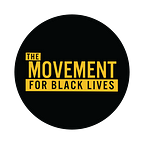Family,
Today marks ten years since the murder of Trayvon Martin, a 17-year-old Black boy beloved by his family. A boy who deserved a future and the chance to grow into the person he wanted to become. A boy whose life was stolen by a white supremacist backed by racist policy and culture. Since then, dozens of organizations, networks, coalitions, and alliances have formed to vindicate his death — awakened and politicized by the exceptionally savage brand of American violence inflicted upon its Black residents in the form of police terror, vigilante violence, mass incarceration, pre-trial detention, and anti-Black policymaking.
Trayvon’s murder and the subsequent acquittal of George Zimmerman galvanized a new class of activists, organizers, and formations who have built sophisticated infrastructure for the 21st-century Black freedom movement to make collective change.
Trayvon’s death was followed by the deaths of Michael Brown, Rekia Boyd, Tamir Rice, and so many others. As Black people were executed state by state, the post-racial Obama myth faded, and “Black Lives Matter” permeated the streets, the airways, the halls of Congress, and digital spaces, while transcending borders, regimes, languages, and cultures. Obama never intended to be and could not be the savior of Black people — only Black people as a collective can do that.
And we are. The Movement for Black Lives (M4BL) was founded in 2014 to serve as a hub for Black liberation organizations uniting around a shared purpose to significantly reduce state violence, including police terror, and to have a say in how our communities are governed. Together we create a broad political home for Black people to learn, organize and take action.
Movements aren’t started as much as they’re born and reborn, constantly evolving and adapting to counter the prevailing, contemporary means of state power, which ranges in volatility and violence depending on the country’s economic and social tensions. The priorities of our organizations diverge, but what we have in common is that we’re shaped by the lives and legacies of the Civil Rights and Black Power activists who came before us. We are children born from lineages of revolutionaries and freedom fighters, and we are guided by their lessons of love and liberation.
We are imperfect, ever-adapting, and challenging one another to think more critically and expand our vision of what’s possible. Although we do not always agree on how to get there, we remain clear in our purpose of creating a world in which our people no longer live in fear.
As we remember Trayvon and what his death ignited, we stretch ourselves to extend more grace to one another; to pay closer attention to the lessons of our ancestors and movement predecessors; and to continue to create an inclusive, safe, welcoming home for all Black people to learn, connect, and organize.
In honor of those we’ve lost, those who fought before us, and those who will organize and build power after us, we continue this fight for Black lives.
In love and solidarity,
Movement for Black Lives
